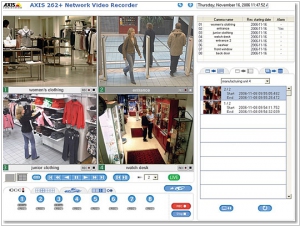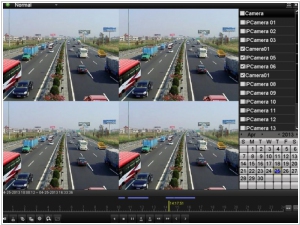AXIS vs Hikvision
September 02, 2023 | Author: Michael Stromann
See also:
Top 10 Video Surveillance services
Top 10 Video Surveillance services
AXIS and Hikvision are two well-known manufacturers in the video surveillance industry, but they have distinct differences in their offerings and approach. Firstly, AXIS Communications is known for its high-quality and innovative network cameras and video management software. They have a strong focus on advanced technology, producing cutting-edge products suitable for various applications, including professional and enterprise-level surveillance systems. AXIS cameras are often preferred for their superior image quality, low light performance, and advanced features like edge analytics and built-in artificial intelligence capabilities. Additionally, AXIS places a strong emphasis on cybersecurity, providing regular firmware updates and adhering to strict security standards, making them a popular choice for security-conscious organizations and government entities.
On the other hand, Hikvision is a prominent Chinese manufacturer offering a wide range of video surveillance products, including IP cameras, NVRs, and DVRs. Hikvision's strength lies in its extensive product portfolio, providing solutions for both small-scale and large-scale surveillance deployments. Hikvision cameras are known for their affordability, making them a preferred choice for cost-sensitive projects. They offer various camera models with different resolutions and features, allowing users to find suitable options for their specific needs. However, it's important to note that Hikvision has faced some scrutiny regarding cybersecurity concerns, which has led to some restrictions in certain markets. Despite this, Hikvision remains a dominant player in the video surveillance market, especially for budget-conscious users.
Another key difference between AXIS and Hikvision is their approach to distribution and customer support. AXIS often relies on a network of authorized resellers and system integrators, providing personalized customer service and support. They tend to focus more on working closely with their partners to ensure proper installation and system configuration. On the other hand, Hikvision has a more extensive global presence and often sells their products through various channels, including authorized distributors, online retailers, and local partners. This approach allows Hikvision to reach a broader market and cater to a wide range of customers with varying surveillance needs. The choice between AXIS and Hikvision depends on factors such as the desired level of technological innovation, image quality requirements, budget constraints, and the need for specific customer support and distribution channels.
See also: Top 10 Surveillance Systems
On the other hand, Hikvision is a prominent Chinese manufacturer offering a wide range of video surveillance products, including IP cameras, NVRs, and DVRs. Hikvision's strength lies in its extensive product portfolio, providing solutions for both small-scale and large-scale surveillance deployments. Hikvision cameras are known for their affordability, making them a preferred choice for cost-sensitive projects. They offer various camera models with different resolutions and features, allowing users to find suitable options for their specific needs. However, it's important to note that Hikvision has faced some scrutiny regarding cybersecurity concerns, which has led to some restrictions in certain markets. Despite this, Hikvision remains a dominant player in the video surveillance market, especially for budget-conscious users.
Another key difference between AXIS and Hikvision is their approach to distribution and customer support. AXIS often relies on a network of authorized resellers and system integrators, providing personalized customer service and support. They tend to focus more on working closely with their partners to ensure proper installation and system configuration. On the other hand, Hikvision has a more extensive global presence and often sells their products through various channels, including authorized distributors, online retailers, and local partners. This approach allows Hikvision to reach a broader market and cater to a wide range of customers with varying surveillance needs. The choice between AXIS and Hikvision depends on factors such as the desired level of technological innovation, image quality requirements, budget constraints, and the need for specific customer support and distribution channels.
See also: Top 10 Surveillance Systems





